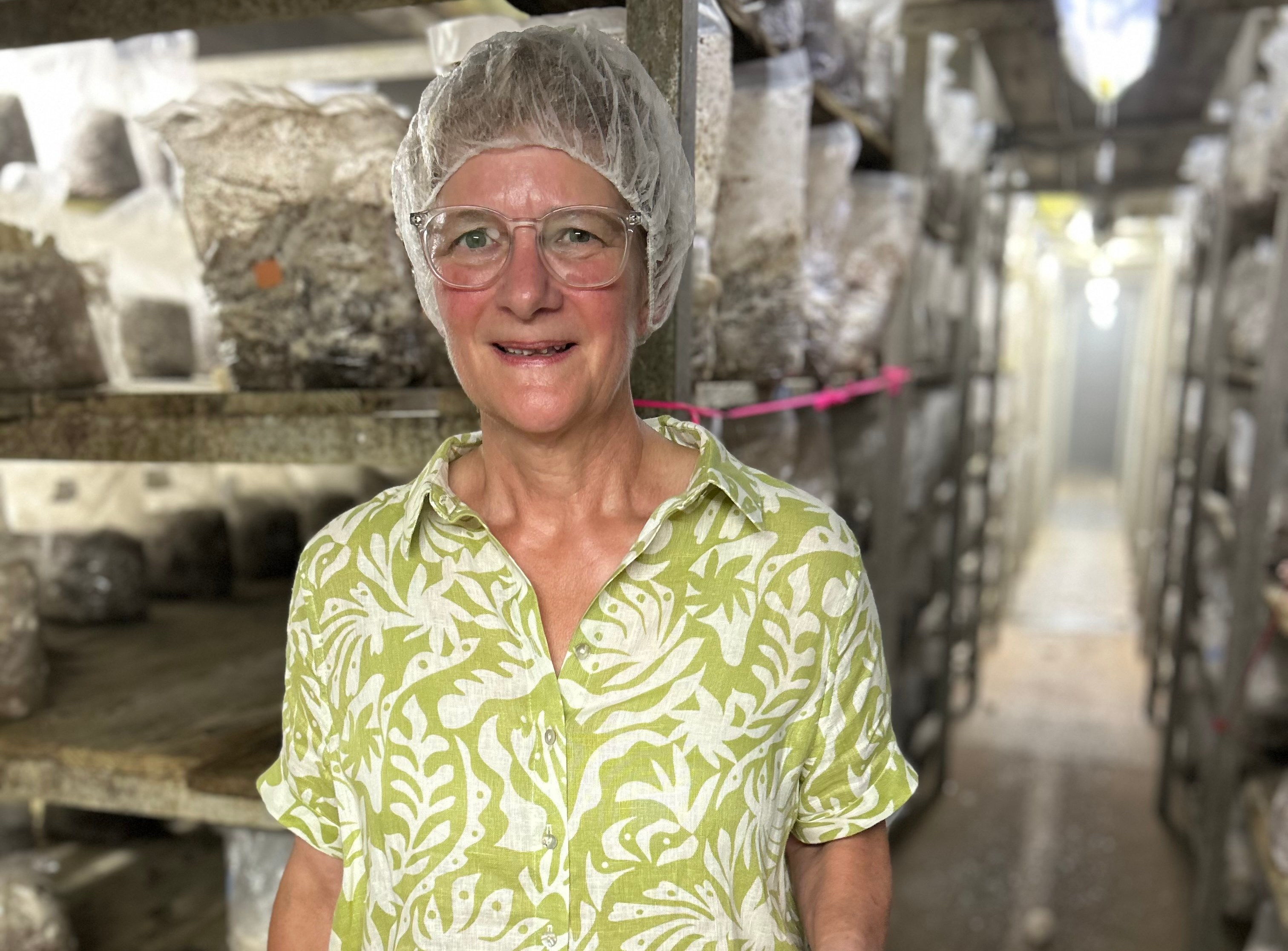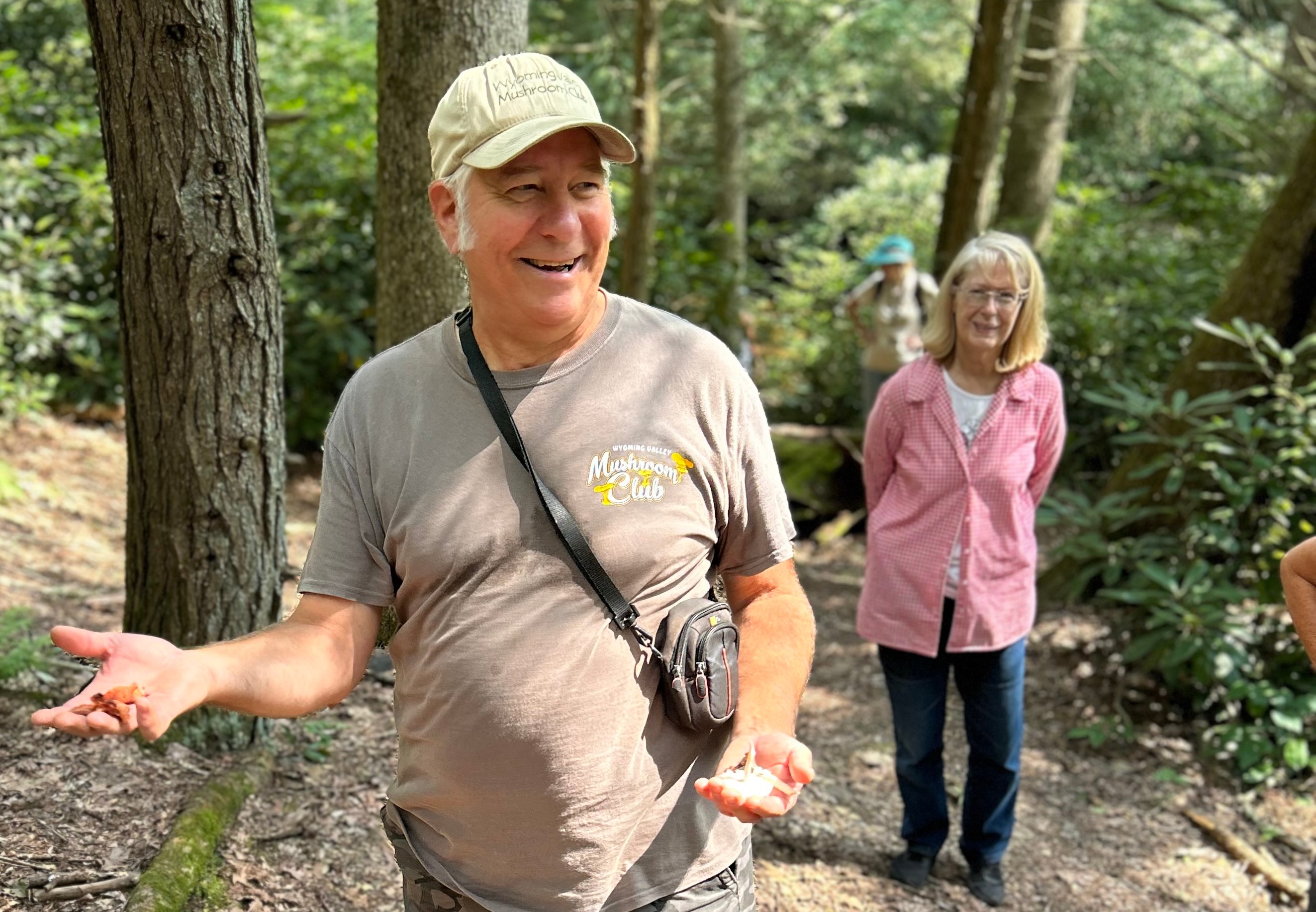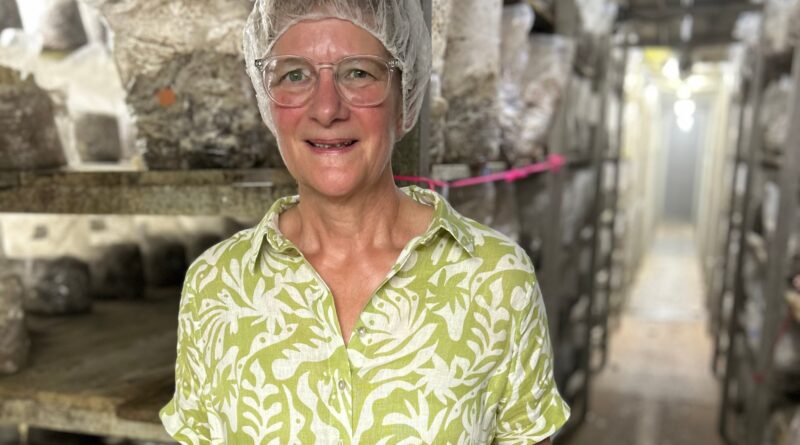A questionable new health trend: mane mushrooms
The factory creates an unexpected Aladdin’s cave. But outside the thick metal door and inside the cold, damp rooms, there is a treasure. Lion’s mane mushrooms are the gold of farming right now.
It has a slightly sweet flavor, can be marinated and served as vegan crab cakes, or marinated hard and served as steaks. But that’s not why the white pom-poms star in more than 65 million TikTok videos.
The explosion in their popularity has a lot to do with the (contradictory) claims made about their health benefits. Used in Eastern medicine for centuries, modern converts say mushrooms increase memory, reduce stress, and can help prevent dementia. They can be taken as daily capsules, or as a powder to be dissolved in tea.
Last October, Gisele Bündchen, the Brazilian supermodel turned health expert, who is now an “ambassador” for Gaia Herbs in North Carolina, shared a simple meditation video with her followers. home of 23 million on Instagram, he said: “I’ve been taking lion mushroom for a while and it helps me a lot to focus and boost my energy.
In the UK supermarket sales have been boosted by Sunday Times columnist Jeremy Clarkson featuring them in his Amazon television series. Clarkson Farm.
The demand is so great that Phillips Mushroom Farms, the largest producer of exotic mushrooms in the United States, has quadrupled its lions production in the past year and plans to expand.
“Twenty years ago, I would have fallen off my chair if I heard someone on TV talking about lion’s mane,” said Tina Ellor, mycologist and technical director. of Phillips. “Now I hear it all the time.”

Tina Ellor of Phillips Mushroom Farms, America’s largest grower
The company is based in Kennett Square, a town of 6,000 people south of Philadelphia, known as the “mushroom capital of the world”. Half of all American mushrooms come from here.
Mushrooms have been cultivated locally since the mid-1880s. The location was ideal: Philadelphia, Baltimore, Washington and Wilmington, Delaware, were all within 100 miles, providing a market for mushrooms and a steady supply of horse manure from in the schools.
William Phillips founded his company in 1927; his grandson runs it today, certified organic, with over 900 employees. The climate means they can keep the mushroom barns cool enough to grow all year round. And the demand for exotic mushrooms – anything but white mushrooms – has increased: sales exceeded $ 100 million a year until July 14, according to the Mushroom Council, the increase 43 percent over the past four years.
Phillips began growing lion’s mane in 1999, in plastic bags of red oak sawdust, filled with grain. Today the bags are arranged on racks in cool, dimly lit rooms. Many modern factories — including some Phillips locations — use metal racks, but Ellor, 63, admitted he has a soft spot for the old wooden lines, which he suspects that it helped conserve water.
Mushrooms grow quickly, taking less than three weeks from start to finish. A pound of fresh lion’s mane costs between $10 and $15 — about the same price as maitake and king trumpet, but about twice the price of oyster mushrooms, and three times as much. the price of common white mushrooms. It takes 8lb of four mushrooms to make 1lb of mushrooms.
Ellor and other scientists are urging caution about the tsunami of lion’s mane mushroom supplements and powders now hitting the market.
He recommends supplements that include the “roots”, known as mycelium, as well as the “fruit” – the actual mushrooms we see above. He says that there must be heat involved in the process, to destroy the mushroom cells and to find the beauty inside.
But there’s a lot of good science to show that mushrooms are a good prebiotic: they feed your good microbiome.
Professor Marion Nestle of New York University, who in 1988 founded the country’s first academic nutrition program, said some science on lion supplements is “unsettled”.
Although he admits they are not bad for people, he said some of the companies’ claims – that they help prevent Alzheimer’s disease, prevent Parkinson’s disease, delay colon cancer – are “eye-opening”.
Many of the studies cited by marketing managers were in journals where the authors pay to be published, or whose work is funded by interested parties. “I would say, if we take a scientific approach, there is nothing special about them.”
However, Nestle’s doubts have been tempered by the market’s enthusiasm. Susan Hirsch, Gaia’s product manager, says demand for lion’s mane capsules is on the rise – it’s quickly gaining top sellers, such as tumeric tablets and black elderberry supplements.
Since they launched their lion capsules in 2020 – the first in the US to offer capsules made from fruit, instead of combining fruit with mycelium – sales have doubled in a year.
“I hear a lot of people say it helps with mental clarity. There have been several clinical studies, and there are more to come,” Hirsch said. diseases: we prefer to talk about mental health and support the health of the nervous system, which is a more effective approach. We keep our statements general and vague.”

Dave Wasilewski, president of the Wyoming Valley Mushroom Club, takes the group on a foraging trip to Beltzville State Park.
Eighty miles north of Kennett Square, twenty hikers gathered on a recent day at Beltzville State Park for an organized foraging trip. Dave Wasilewski, president of the Wyoming Valley Mushroom Club, led the group through the forest in search of fungi, exclaiming with delight at seeing certain types of mushrooms.
At one point he said: “I think I could describe it as ‘eatable if hungry’. Another had “very outstanding qualities”. It was said that part of The third is almost like a very dangerous type.
He said: “Poisonous ones are indeed poisonous. “Best case scenario: dialysis for life. Worst case is dying a horrible death within two weeks.”
Wasilewski said the lion’s mane, which did not appear on the tour, was currently the king of the mushroom styles – but added that he loved them all.
“When I first started doing this, 40 years ago, people were surprised, and they said, ‘Mushrooms?!’,” he laughed. But in the last five years it has become, ‘Mushrooms!’ Now people are really passionate about fungi, especially medicinal mushrooms – teas and tinctures etc. We got nothing today. But they are there. And it’s very popular. ”
#questionable #health #trend #mane #mushrooms
